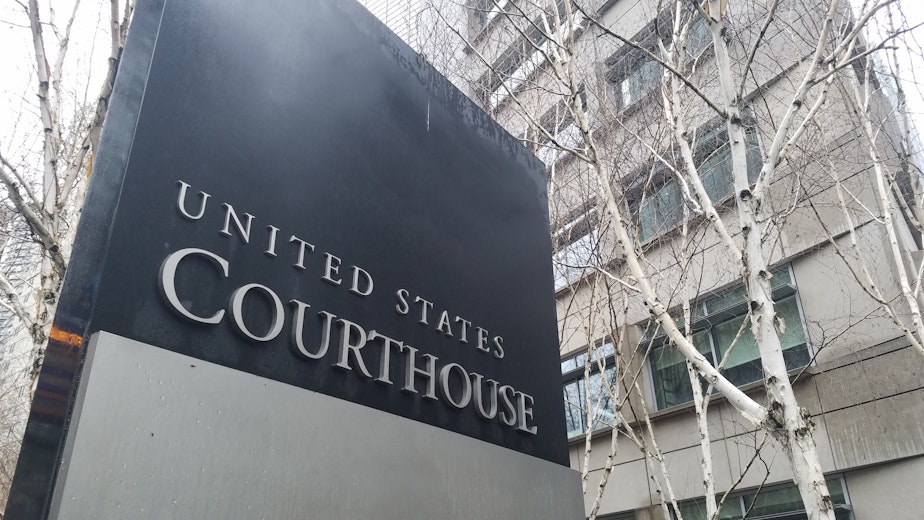Why is Seattle dropping 2,000 misdemeanor cases?

Last week Seattle City Attorney Ann Davison’s office announced that they would decline to prosecute almost 2,000 misdemeanor charges.
The office says this is just a portion of the almost 5,000 case backlog left by Davison’s predecessor, Pete Holmes.
Davison took office in January, and throughout her campaign ran on a platform of increased prosecution of misdemeanor crimes, and an emphasis on public safety.
She told Soundside host Libby Denkmann that this backlog goes back far before she took office.
The backlog left by the previous city attorney meant that "a case has been sitting on average about 334 days," Davison said.
"Meaning that a police referral was sent to the office and a response was not made until an average of 334 days later," she explained. "The longest case sat in the backlog for over two years."
Davison said that left her office with a tough choice.
Sponsored
"We need to be closing in that time gap from when a crime is committed and our response is given," she said. "So, when we're looking backward at nearly 5,000 criminal cases, we had to make some very difficult decisions with heavy heart of how to prioritize those."
That prioritization will focus on severity of crime, with an emphasis on crimes against persons — such as domestic violence, sexual assault and DUIs.
Davison said the office has already seen a reduction of 500 cases from the backlog since she took office in January. Her goal is for the City Attorney's Office to eventually respond to all filings within five business days.
"We want to close that time gap from when a crime occurs and the response to what we do to that is given," Davison said. "So, there will be cases that will be declined, there will be cases that will be diverted, and there will be cases that will be prosecuted. Because that's what our role is here in the city as the city's misdemeanor prosecutor."
Erica Barnett, publisher and reporter at Publicola, said she believes Davison's plan is a smart move.
Sponsored
"The fact that they are focusing on these lower-level cases and prioritizing the higher-level cases is consistent with what city attorney Davidson said on the campaign trail," Barnett said. "I think she's listening to her advisers, including Natalie Walton-Anderson, her criminal chief, and making some very rational decisions based on the reality of this giant backlog that she has."
Barnett also noted that the situation Davison faces is not just the fault of her predecessor, Pete Holmes. A lot of the backlog occurred during the pandemic.
Barnett's main question for Davison is — what happens next?
"When they're trying to do this close in time filing or decision making, are they going to dismiss cases at the same rate as Pete Holmes?" she asked. "Or are they going to more aggressively prosecute these low-level cases?"
Barnett cautions that without a social safety net in place, more prosecution of low-level crimes committed due to poverty or addiction might not be beneficial.
Sponsored
"It's important to know that that social safety net does not currently exist, and particularly when you're talking about sending people to jail, there is no social safety net at jail," Barnett said. "For the most part, throwing people in jail for a couple of nights just make their lives worse. And so that's a question for the City Council. But it's also something that Davison could be advocating for."
It's also not just up to Davison to deal with the backlog, Barnett explained. Other parts of the system are just as backed up, such as the courts and prisons.
"You can prosecute everybody in the backlog today, but they're just gonna be sitting in the court system," Barnett said. "And then the jail is full. So there's all kinds of places where the system backs up that the City Attorney's Office can't really impact directly."





